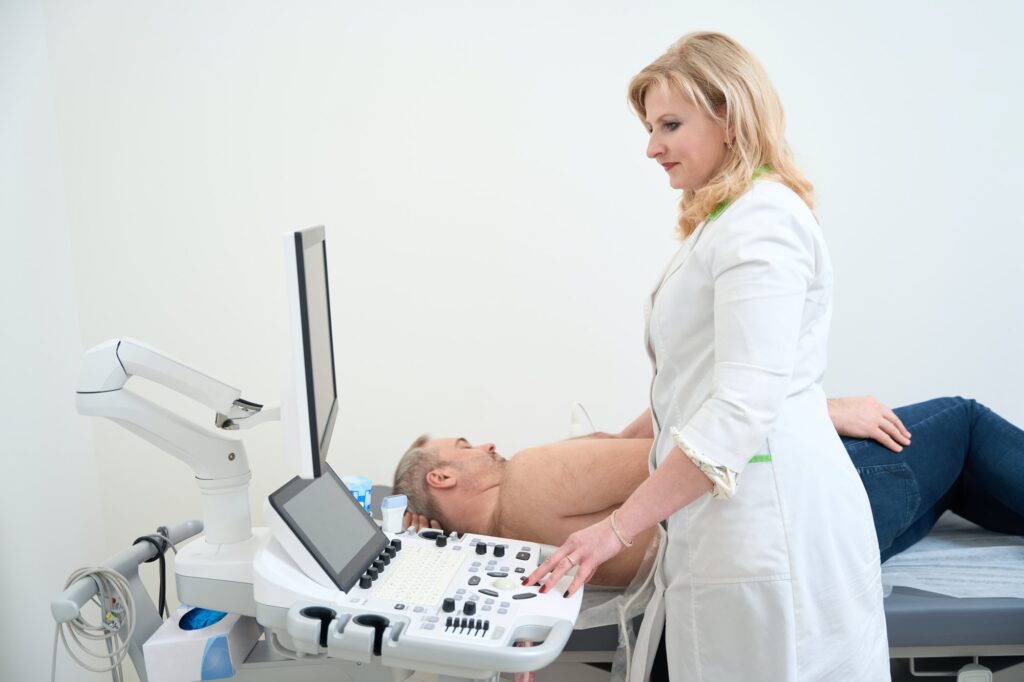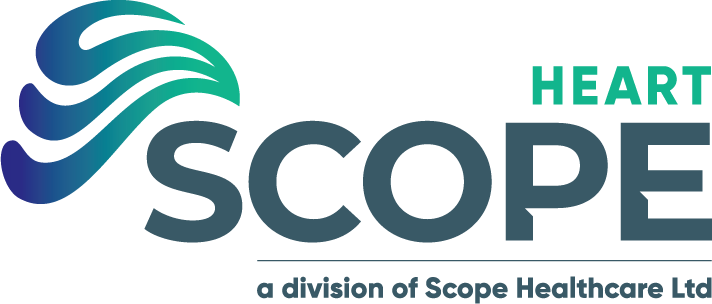Echocardiogram
- Home
- Our Services
- Echocardiogram

Indications
Here are some common reasons why your doctor might or might have recommended an Echocardiogram (TTE):
- Experiencing Symptoms: If you've been having symptoms like shortness of breath (dyspnoea), abnormal heartbeats (palpitations), feeling faint just before losing consciousness (presyncope), sudden loss of consciousness (syncope), chest pain, or if your doctor has heard abnormal heart sounds (cardiac murmurs) during a physical examination.
- Signs of Heart Failure: If you've been showing physical signs of heart failure, an echocardiogram can provide more information about your heart's condition.
- Screening and Monitoring: If you have high blood pressure (hypertension), known issues with your heart valves (valvular dysfunction), suspected high blood pressure in the arteries of your lungs (pulmonary hypertension), a family history of heart muscle disease (cardiomyopathy), or you're taking medications that can harm the heart, such as Clozapine or certain chemotherapy drugs, your doctor might use an echocardiogram for regular check-ups to monitor your heart's health.
- Evaluation of Known or Suspected Adult Congenital Heart Disease: If you're known to have a heart condition that you were born with (congenital heart disease), or if your doctor suspects you might have such a condition, an echocardiogram can be used to evaluate your heart's structure and function.
What is an Echocardiogram?
An Echocardiogram, sometimes called a cardiac echo or simply an echo, is a non-invasive heart examination that uses sound waves to create a moving picture of your heart. This image can highlight any irregularities in your heart’s chambers or valves.
Echocardiography is a standard tool for diagnosing, managing, and monitoring patients with suspected or confirmed heart conditions. It’s one of the most common diagnostic procedures in the field of cardiology. The test can provide lots of valuable information, such as the size and shape of your heart, how well it pumps blood, and whether there is any damaged tissue. It can also help doctors evaluate specific aspects of heart function like cardiac output, ejection fraction (how much blood the heart pumps out with each contraction), and diastolic function (how well the heart relaxes).
One of the main benefits of an echocardiogram is that it’s non-invasive, meaning it doesn’t require any incisions or exposure to radiation. There are also no known risks or side effects associated with this test.
What can I expect during the test?
The test usually takes between 30 minutes to 1 hour. Here’s what you can expect:
- You’ll be asked to remove clothing from the upper half of your body and wear a gown.
- You’ll lie down on a bed.
- Your skin will be cleaned with rough paper and alcohol wipes.
- Electrodes will be attached to your chest to monitor your heart’s electrical activity.
- Gel will be applied to your chest, and a probe will be moved around to capture images of your heart.
- You may need to hold your breath or lie on your side for brief periods during the test.
What are the risks of the test?
There are no known risks or side effects associated with an echocardiogram. It’s a safe and widely used procedure for evaluating heart health.
Preparation
(This test will take up to 30-45 minutes)
To prepare for the test, follow these guidelines:
- For males, be aware that the technician may need to shave some hair on your chest to ensure the electrodes stick properly to the skin.
- For females, it is advisable to wear two-piece clothing so that the top half can be easily removed during the test. This will facilitate the electrode placement and examination process.
No other preparation is required.
Request an Appointment with Heartscope.
Call us or submit a request form to make an online booking.

